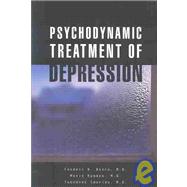
What is included with this book?
Fredric N. Busch, M.D., is Clinical Associate Professor of Psychiatry at Weill Medical College of Cornell University and on the faculty at the Columbia University Center for Psychoanalytic Training and Research in New York, New York.
Marie Rudden, M.D., is Clinical Assistant Professor of Psychiatry at Weill Medical College of Cornell University, Training and Supervising Analyst at Berkshire Psychoanalytic Institute, and on the faculty at the New York Psychoanalytic Institute in New York, New York.
Theodore Shapiro, M.D., is Emeritus Professor of Psychiatry in Pediatrics at Weill Medical College of Cornell University, and Training and Supervising Analyst at the New York Psychoanalytic Institute in New York, New York.
| Part I Introduction and Overview | |||||
|
3 | (10) | |||
|
13 | (18) | |||
|
31 | (8) | |||
| Part II Techniques in Psychodynamic Treatment of Depression | |||||
|
39 | (18) | |||
|
57 | (18) | |||
|
75 | (16) | |||
|
91 | (16) | |||
|
107 | (16) | |||
|
123 | (16) | |||
|
139 | (10) | |||
|
149 | (12) | |||
| Part III Special Topics | |||||
|
161 | (10) | |||
|
171 | (12) | |||
|
183 | (14) | |||
| Index | 197 |
The New copy of this book will include any supplemental materials advertised. Please check the title of the book to determine if it should include any access cards, study guides, lab manuals, CDs, etc.
The Used, Rental and eBook copies of this book are not guaranteed to include any supplemental materials. Typically, only the book itself is included. This is true even if the title states it includes any access cards, study guides, lab manuals, CDs, etc.